All News
Fan Has Paper on Cross-Species Inference Accepted to Nucleic Acids Research

Jason Fan, a research graduate assistant in the Center for Bioinformatics and Computational Biology (CBCB), recently had a paper on cross-species inference accepted to the journal Nucleic Acids Research.
“Functional Protein Representations from Biological Networks Enable Diverse Cross-Species Inference,” examines a kernel-based method, MUNK, to integrate sequences and network structures to create functional protein representations, embedding proteins from different species in the same vector space.
Fan co-authored the paper with Max Leiserson, an assistant professor of computer science and a member of CBCB, along with collaborators from the University of Washington, University of North Carolina Medical School, Boston University, Princeton University and Northeastern University.
As part of their work, their research showed proteins from different species that are close in MUNK-space and are functionally similar. Next, they used these representations to share knowledge of synthetic lethal interactions between species. Importantly, they found that the results using MUNK-representations were at least as accurate as existing algorithms for these tasks. By generalizing the notion of a phenolog ("orthologous phenotype") to use functionally similar proteins (i.e. those with similar representations), they were able to demonstrate the utility of this broadened notion by using it to identify known phenologs and novel non-obvious ones supported by current research.
To read the full paper, go here.
Leiserson Using Machine Learning to Advance Cancer Treatments
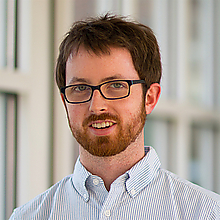
Immunotherapies, which use a person’s own immune system to fight cancer, have produced revolutionary results in recent years, including curing people with previously inoperable, advanced disease. Such stellar successes have propelled some of these drugs to become the standard of care for treating many forms of cancer. And yet, most of them only work for a minority of patients. In some cases, fewer than 20 in 100 patients will benefit.
Predicting which patients will benefit and which ones won’t has been an elusive but very important goal, because immunotherapies can have significant, even life-threatening side effects, and costs can run into the hundreds of thousands of dollars per treatment.
University of Maryland computer scientist Mark (Max) Leiserson and colleagues from Microsoft Research and Memorial Sloan Kettering Cancer Center believe a solution lies in a new approach to the data, one that analyzes multiple facets of patients and their cancer simultaneously rather than seeking a handful of key factors that can predict success.
In a study published in the journal PLOS One on December 31, 2018, Leiserson and his colleagues used data from a clinical trial of bladder cancer patients to demonstrate that their approach could identify a suite of features that accurately predicted a key immune system response to treatment while reducing over treatment by half.
“If your goal is to treat everyone in that particular dataset who will respond, the type of multifactorial modeling we show in this paper will let you do that while treating many fewer people who won’t respond,” said Leiserson, the paper’s lead author and an assistant professor in the Department of Computer Science at UMD. Leiserson began conducting this study while he was a postdoctoral researcher at Microsoft Research, New England and continues to consult for the company.
“What’s also exciting about this study is that we were not just looking at patient outcome, but at a specific marker of immune response, which gave us a much better picture of what’s going on," said Leiserson, who also has a joint appointment in the University of Maryland Institute for Advanced Computer Studies.
Leiserson and his team analyzed data from a clinical trial of the drug atezolizumab on patients with advanced bladder cancer (metastatic urothelial cancers). Currently, the primary methods for predicting treatment success with this class of immunotherapy drugs (known as immune checkpoint therapy) rely on two key biomarkers—features of a patient’s disease that correspond to treatment outcomes.
One biomarker is the number of genetic mutations in the tumor cells, the other is the presence of a protein called PD-L1 that prevents immune cells from attacking cancer cells. In this case, using those two biomarkers to identify patients for treatment casts an overly wide net. In order to reach 100 percent of the patients who will benefit, clinicians would treat 77 percent of the patients who did not benefit from treatment.
In contrast, Leiserson and colleagues showed that their multifactorial computer model predictions of which patients would benefit could include as few as 38 percent of those who did not benefit while still capturing 100 percent of the patients who did. The key, they found, was to include three distinct types of data, something not currently standard in cancer studies or treatments.
Although immunotherapy researchers are beginning to collect more information about cancer patients and their responses to therapy, the focus is still largely on finding a few key markers that stand out as important predictors of success. The solution, however, may be far more complex. There may not be just a handful of important features or markers for all patients, and those that exist are likely to function in some complicated combination.
“People are realizing that predicting response is more and more appropriate and needed, and to be able to do this, the traditional kind of single biomarker approach isn’t always enough,” Leiserson said.
To generate their computer model, Leiserson and his team analyzed data from a clinical trial with a uniquely rich data set that captured information about tumor cells, immune cells, and patient information such as demographics and medical history. Like many studies, the trial was aimed at finding key features associated with a specific response to the drug. Recognizing the potential in such a multi-modal data set, the researchers saw an opportunity to apply machine learning to the problem. They fed 36 different features into their model and allowed the computer to identify patterns that could predict increases in potential tumor-fighting immune cells in a patient’s blood after treatment. (In the study patients, expansion of T cells in the blood post-therapy was associated with progression-free survival.)
The resulting algorithm identified 20 features that, when analyzed together, explained 79 percent of the variation in patient immune responses. According to Leiserson, this means that the unusually comprehensive set of features gathered for these patients is sufficient to predict the patient immune response with high accuracy.
Even more importantly, they found that if they eliminated any one of the three categories of data from the model (tumor data, immune cell data or patient clinical data) the immune response was no longer predictable—their model could only predict at most 23 percent of the variation. Leiserson stresses that it’s not necessarily the 20 characteristics that are important, but rather the reliance on a multifactorial approach.
“These features we identified may not be the only features that can be used to predict how a patient will respond,” he said. “There may be others that you could replace these with, but it’s about the method and the inclusion of all three categories of features.”
Another unique aspect of the team’s approach is that they focused on predicting changes in T cells in patient blood rather than simply predicting overall patient outcome.
“We looked at immune cells in the tumor and in the blood before and after treatment, and we asked the question, ‘Which of the immune cells that were in the tumor before treatment expanded in the blood after, potentially meaning they were responding to something?’” Leiserson said.
Understanding that response provides a much finer grained picture of the interactions between tumor, therapy and immune system.
“Progression-free survival is a standard measures of response to a cancer treatment,” Leiserson said. “But in our case, we have a more continuous value that is closer to a direct readout of how much of an effect the treatment has on the immune system. And, in this data set, the predicted immune response is strongly associated with durable clinical benefit.” Meaning, the cancer had not progressed in the six months after treatment.
Leiserson sees this work as a natural parallel to current efforts in precision oncology, which aims to tailor treatments to the genetics and molecular profiles of individual patients’ tumors.
“We are trying to predict what’s going to happen for a single patient by looking at their molecular profile and clinical history,” he said. “It’s about building an understanding of the molecular landscape of the tumor, which provides additional information beyond which tissue it’s in or what the tumor looks like under the microscope.”
The model the scientists developed isn’t ready to be used as a diagnostic tool because it only incorporated data from 21 patients, which is far too few to be predictive for the general population. Leiserson said they are hoping to add patients to the model as more data comes in. He hopes the study’s success will encourage hospitals and other researchers to invest the time and effort into gathering more information than they traditionally have.
“One of the goals of this work was to ask the question, ‘Should hospitals prioritize gathering this type of data?’” Leiserson said. “And now we can say that this multifactorial approach lets us better predict the response to these immunotherapies. I hope that it motivates the effort and expenditure of continuing to collect this data.”
Both the data used for the study and the algorithm Leiserson and his team developed are open source and available on Github.
###
The research paper “A multifactorial model of T cell expansion and durable clinical benefit in response to a PD-L1 inhibitor,” Mark D. M. Leiserson, Vasilis Syrgkanis, Amy Gilson, Miroslav Dudik, Sharon Gillett, Jennifer Chayes, Christian Borgs, Dean F. Bajorin, Jonathan E. Rosenberg, Samuel Funt, Alexandra Snyder, Lester Mackey was published in the journal PLOS One on December 31, 2018.
Mihai Pop Named Director of UMIACS
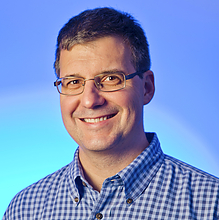
Mihai Pop, a professor of computer science noted for his scientific research and advocacy for greater equality in academia, has been appointed director of the University of Maryland Institute for Advanced Computer Studies (UMIACS), effective Nov. 25, 2018 through June 30, 2022.
Pop will provide leadership to more than 80 faculty members who hail from 11 departments across the UMD campus, as well as 150 graduate students and almost two dozen administrative and technical staff members who support the institute’s research, innovation and outreach.
He has served as interim director of UMIACS since March 2018, succeeding Amitabh Varshney, who is now dean of the university’s College of Computer, Mathematical, and Natural Sciences.
“Mihai has a strong record of scientific research with impact and has amply demonstrated his ability to move UMIACS forward,” Varshney said. “I look forward to working closely with him as our college and the university expand their scientific scope and educational reach in areas that are closely tied to advances in computing.”
Pop said he is honored to be chosen to lead the institute, noting that the core mission of UMIACS is to pursue interdisciplinary research that will have a positive impact on both science and society.
“I look forward to working with our faculty, postdocs, students and staff to bring the power of modern computing to bear on many of the challenges we face,” Pop said.
UMIACS was launched in 1985, and currently boasts 16 labs and centers focused on areas like computer vision, computational biology, cybersecurity, and natural language processing. Combined with the Department of Computer Science—where 65 percent of UMIACS faculty members have tenure or tenure-track appointments—the institute brings in almost $25 million annually in research funding.
Pop said recent advances in computational power and fresh theoretical approaches have expanded the institute’s research agenda to include substantial activity involving machine learning, the human microbiome, autonomous robotics, quantum information science, and virtual and augmented reality.
He plans to help recruit new faculty members to pursue cutting edge work in these high priority areas, while also capitalizing on other resources including the Brendan Iribe Center slated to open in early 2019, a recently announced collaboration with Capital One, and the institute’s advantageous location near federal labs and agencies in the Washington, D.C. area.
“We have the human talent, the physical infrastructure—and are in the right location, at the right time—to grow our research enterprise significantly,” Pop said. “I would like UMIACS to be better recognized both at the national and international level for the important work we do.”
A strong advocate for bringing more diversity to the field of computer science, Pop said he will continue to support the Maryland Center for Women in Computing and other initiatives that enhance participation in the discipline by people from diverse backgrounds. As interim director, he sponsored activities like Technica, the world’s largest all-women hackathon; the Diversity in Computing Summit; and the Widening Natural Language Processing workshop.
He also intends to provide resources and encouragement to tenure-track and professional-track UMIACS faculty members who are in the early stages of their academic careers.
“The voice of a fresh Ph.D. assistant professor is often louder than that of the most experienced lecturer or research scientist on our campus,” Pop recently wrote in an op-ed piece in The Faculty Voice. “It is high time for a change. Our campus cannot excel if we continue to ignore and undervalue the many faculty who shoulder the bulk of our teaching, and who represent a critical driving force in our research programs. Whether professional or tenure-track faculty, we are all faculty.”
Pop’s own research interests cover several areas of bioinformatics, primarily related to the development of computational algorithms for analyzing biological data generated by high-throughput experimental techniques, such as sequencing technologies.
Part of Pop’s research focuses on the computational analysis of the microbial communities inhabiting our world and our bodies—a scientific field called metagenomics. His lab, part of UMIACS’ Center for Bioinformatics and Computational Biology, has developed a number of software tools that are now widely used in the field. He has also been an active participant in a number of large-scale, multinational projects, including the Human Microbiome Project and the GEMS study of diarrheal disease in children from the developing world.
In 2018, Pop made Clarivate Analytics’ list of Highly Cited Researchers, a compilation of influential names in science whose published work in their specialty areas has consistently been judged by their peers to be of particular use and significance. He was also included in the 2014 list.
In addition to his leadership role in UMIACS, Pop is co-director for the Center for Health-related Informatics and Bioimaging, a partnership between the University of Maryland, College Park and the University of Maryland, Baltimore that is funded by the MPowering the State initiative.
An active educator and mentor, Pop currently advises six graduate students and one postdoc. He previously worked with 11 graduate students and four postdocs, and he spent three years as a faculty adviser to a group of UMD freshmen that analyzed the genome of the diamondback terrapin, the university’s mascot.
Pop earned his B.S. in computer science from University Politehnica of Bucharest in Romania in 1994 and his M.S.E. and Ph.D. in computer science from Johns Hopkins University in 1998 and 2000. He has been at Maryland since 2005.
Colwell Honored by American Association of Geographers
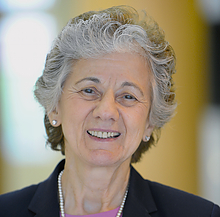
Rita Colwell, a Distinguished University Professor in the University of Maryland Institute for Advanced Computer Studies, has been honored by the American Association of Geographers (AAG) with its 2019 AAG Honorary Geographer award.
The award recognizes exceptional leaders in the arts, research and teaching, as well those that excel in writing on geographic topics, including work by non-geographers.
Previous awardees include biologist Stephen J. Gould, architect Maya Lin, Nobel Laureate in economics Paul Krugman, sociologist Saskia Sassen, economist Jeffrey Sachs, and authors Calvin Trillin, Barbara Kingsolver, John McPhee and Barry Lopez.
Colwell, who continues to conduct research in the Center for Bioinformatics and Computational Biology, was recognized by the AAG for her pioneering research in water and health, with a particular focus on cholera and other waterborne infectious diseases.
She is currently collaborating with the United Nations and the British government to help curb cholera in Yemen and other affected regions.
The team is using data from NASA satellites to create risk maps based on several factors including air and water temperatures, precipitation, severity of natural disasters, sanitation and hygiene infrastructure, and population density.
Colwell will receive the AAG award at the organization’s 2019 annual meeting held next April in Washington, D.C.
UMD Research Scientist Unveils New Strategies to Search Large DNA Databases
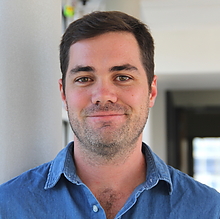
Sometimes bigger is not necessarily better. Take DNA databases, for example. As a result of substantial advances in computing power, scientists can now rapidly slice and dice genomic data used to identify different species of bacteria, or at least find their close relatives.
This is relevant for researchers wanting to match unknown DNA sequences against a database of known sequences, helping to answer fundamental biological questions such as what organism is this DNA from, or what gene might it encode?
But DNA databases used in these searches have grown so large, so quickly, sometimes undermining the scientific process. This may cause medical or environmental researchers to conclude that their as-yet-unidentified samples contain potentially harmful organisms, when in fact they don’t.
A research scientist in the University of Maryland’s Center for Bioinformatics and Computational Biology (CBCB) has just published an analysis that demonstrates a call for improved methods and algorithms when searching large DNA databases.
Daniel Nasko (in photo), working with experts from Rice University and the National Human Genome Research Institute, detailed current challenges and offered several strategies to improve the accuracy of DNA classifications using high-throughput sequencing tools. The goal is to rapidly classify microbes more confidently.
The research team’s analysis recently appeared in Genome Biology. Nasko was lead author of the study. Todd Treangen (lead researcher on the team from Rice University), Sergey Koren and Adam Phillippy (both from the National Human Genome Research Institute) also contributed.
“This work should highlight that more information does not automatically lead to more knowledge,” says Nasko, who has an appointment in the University of Maryland Institute for Advanced Computer Studies (UMIACS). “By sequencing so many similar bacterial genomes, we’re going to need more advanced algorithms and metrics to determine the biological origin of pieces of DNA.”
For their study, the researchers closely examined RefSeq, a widely used federal database that stores genomes from all of the organisms that have been sequenced. RefSeq currently contains about 1.3 trillion base pairs of data (>1.3 petabytes of data), which makes searching against this database computationally challenging.
The researchers tracked how the addition of more bacterial genomes to the database has made it more difficult for fast algorithms to identify what bacterial species an unknown piece of DNA originated from.
This may be happening because new species of common bacteria are being sequenced over and over again, they say. For example, more than five percent of the bacterial genomes in RefSeq belong to Pseudomonas bacteria (Pseudomonas is only one of nearly 3,300 bacterial genera in RefSeq).
A primary concern for Treangen, an assistant professor of computer science at Rice University who is an expert in the study of genetic material from environmental samples, is maintaining the ability to quickly identify bacteria that pose a threat to public health.
Big data is uniquely positioned to do this, Treangen says, but there’s just so much of it. At present, he explains, low-cost and high-throughput DNA shotgun sequencing machines—which read short DNA sequences from collections of microorganisms—have resulted in the doubling of genomic data in RefSeq every two to three years.
“I initially thought more data is always better for these methods,” says Treangen, who worked closely with Nasko at UMIACS for several years before relocating to Rice earlier this year. “You would expect that there would be no penalty, because database growth is good.”
However, the researchers found that bacterial data in RefSeq has an outsized effect at the species level of the taxonomic hierarchy, which is growing at a breakneck pace.
That’s a problem for scientists who combine two common techniques to identify what they find. One is called k-mer-based classification, which identifies short DNA sequences from all the organisms in a bacterial sample via exact matches.
Most of the methods that have made the problem computationally feasible rely on k-mers, which are exact matches of DNA strings of length ‘k,’ says Treangen. “If a sequenced read perfectly matches something in the database, the intuition is that you can say what that is with great precision and shortcut more expensive computational approaches,” he says.
A commonly used technique with k-mer-based classification is lowest common ancestor (LCA) assignment. LCA assesses all of the organisms an unknown piece of DNA matched, assigning them if necessary to a higher level in the taxonomy, such as a genus rather than a species. But this may not be specific enough for researchers trying to pin down a pathogen.
In fact, the study by Nasko and the other researchers found a k-mer-based classification tool called Bracken, which uses Bayesian statistics to infer the best match for a sequence, which helped mitigate the imbalance. Even so, it struggled to identify genomes with close relatives, but not perfect matches, in the database.
Treangen says well-funded research into particular pathogens is a necessity and has greatly aided rapid-outbreak detection and tracking, but it ultimately biases public databases like RefSeq.
“For instance, there's an immense bias toward foodborne pathogens,” he says. “Society wants to know a lot about Salmonella, and rightfully so. The FDA, and specifically GenomeTrakr, have aided in the sequencing of thousands of relevant pathogens and have added them directly to the reference database.”
However, Treangen says, that skews the reference database toward particular genera and families of microbes in a way that affects the accuracy and sensitivity of fast taxonomic-classification tools like Kraken that use k-mer and LCA-based approaches.
Nasko says the best recent example of a false positive identification is a study that initially reported evidence of deadly bacteria in New York City’s subways. The study, based on sequenced genomes from samples, was later revised to reflect mismatches that falsely identified the sequences of Bacillus cereus (a common bacterium not harmful to humans) as Bacillus anthracis (the bacteria responsible for anthrax).
While a focus on public health is a key priority, the research team says novel techniques able to cope with database growth and noise, coupled with an increased breadth of sequenced genomes, is needed for continued improvements in the field.
“The genetic boundaries that once clearly divided certain bacteria from others are beginning to get a bit murkier as we continue to see more regions different genomes that are shared across species and genera of microbes,” Nasko says. “Our analysis demonstrates that current computational tools make searches against large databases possible, and that’s important, but more sensitive searching strategies are still needed to improve the accuracy of these DNA classifications.”
###
The research was supported by the Division of Intramural Research of the National Human Genome Research Institute, part of the National Institutes of Health, and the Intelligence Advanced Research Projects Activity via the Army Research Office.
This article was adapted from a news release published by Rice University.
Colwell Continues Groundbreaking Research to Battle Cholera
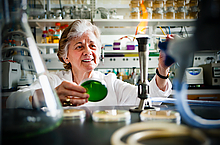
Research by a renowned University of Maryland microbiologist is enabling an international aid effort to predict and stop potential epidemics of cholera.
Rita Colwell, a Distinguished University Professor in the University of Maryland Institute for Advanced Computer Studies (UMIACS), is collaborating with the United Nations and the British government to help curb the waterborne bacterium Vibrio cholerae in Yemen and other affected regions.
The World Health Organization estimates that the disease–which can be deadly if left untreated–infects 1.3 million to 4 million people annually.
The team is using data from NASA satellites to create risk maps based on several factors including air and water temperatures, precipitation, severity of natural disasters, sanitation and hygiene infrastructure, and population density.
Colwell first realized that satellite data could be used to forecast potential cholera outbreaks in 1995. Seeing her research put into action to save lives “is the greatest satisfaction any scientist, mathematician, or engineer could possibly have … essentially a dream fulfilled,” she says.
Anwar Huq, a research professor at the University of Maryland’s Pathogen Research Institute, is also one of the lead scientists on the project.
Last spring, aid workers distributed sterilization and medical supplies in Yemen based on the team’s model that predicted the locations and timing of cholera outbreaks.
The country is currently experiencing a civil war and the worst humanitarian aid crisis in the world, says the UN.The team’s model will be applied to other impoverished regions to prevent and assist with more cholera outbreaks.
“It is truly satisfying to be able to see one’s research, including that done here at the University over the past forty plus years, incorporated into an effective public health success on a global scale,” says Colwell. “I certainly hope other governments, NGOs, and the United Nations will incorporate our model into their ongoing work.”
Go here to see a video of the latest work by Colwell and others involved in this project.
-Story by Maria Herd
Pop Gives Keynote Talk on Use of Algorithms in Microbial Research
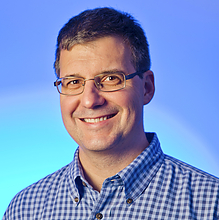
Mihai Pop, a professor of computer science in the Center for Bioinformatics and Computational Biology, recently gave a keynote talk on the use of algorithms in bioinformatics.
Pop spoke at ALGO 2018, an annual meeting combining the premier algorithmic conference, European Symposium on Algorithms, and a number of other specialized conferences and workshops, all related to algorithms and their applications.
The symposium was held from Aug. 20–24 in Helsinki.
Pop’s talk, “From Clustering to Variant Discovery: Algorithmics Opportunities in Microbiome Research,” covered the emergence of metagenomics—the sequencing-based exploration of the genomic content of microbial communities.
Pop says that metagenomics has made it possible to characterize the genomes, and even functions of microbes, that cannot currently be grown in a laboratory. As a result, new microbes and new microbial functions have been discovered in recent years.
In addition to this transformative effect on biology, the analysis of metagenomic data has created new opportunities for computational research. Pop focused his talk on algorithmic challenges related to sequence clustering, functional annotation and structural variant discovery. He also described recent results from his lab in these areas, and discussed several challenges in metagenomics that his group is currently working on.
“Millions of good and bad intestinal bacteria have a very complicated, and partly unknown, way of interacting with each other,” Pop says. “We have focused particularly on studying the intestinal bacteria of children in developing countries, but our algorithmic tools can also be used in cancer research.”
Rita Colwell Awarded Prestigious Lee Kuan Yew Water Prize
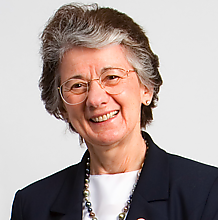
Rita Colwell, a Distinguished University Professor in the University of Maryland Institute for Advanced Computer Studies (UMIACS), has been awarded the prestigious Lee Kuan Yew Water Prize.
The award, now in its 10th year, honors outstanding contributions by individuals or organizations that work toward solving global water challenges with innovative technologies, policies or programs. It is named for Singapore's first Prime Minister, Lee Kuan Yew, whose foresight and leadership enabled Singapore to attain a sustainable water supply.
Colwell was recognized for her pioneering insights into microbial water quality surveillance and life-saving work in fighting waterborne diseases.
The impact of Colwell's research and scholarship has been especially felt in cholera-endemic countries—the result of a key discovery she made in the 1970s involving cholera-causing bacteria, known as Vibrio cholera. Previously thought to be incapable of surviving more than a few hours outside a human host, she discovered that the bacteria occur naturally in the aquatic environment associated with plankton.
This highlighted the critical link between the environment and cholera and led to Colwell's subsequent application of satellite imagery and modelling to predict cholera outbreaks, as well as her innovative use of sari cloths as filters to greatly reduce contamination in drinking water.
Colwell will travel to Singapore in July to receive the award-which includes $300,000 and a gold medallion-as part of a series of events tied to Singapore International Water Week.
Go here to see an overview of the work that Colwell is doing in the fight against cholera.
Mihai Pop Named Interim Director of UMIACS, Effective March 1
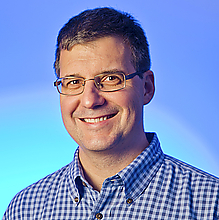
Mihai Pop, a professor of computer science with appointments in the Center for Bioinformatics and Computational Biology and the University of Maryland Institute for Advanced Computer Studies (UMIACS), has been named interim director of UMIACS, effective March 1.
As interim director, Pop will provide leadership to 70-plus faculty and research scientists, 150 graduate students, and almost two-dozen administrative and technical staff working in the institute.
He succeeds current director Amitabh Varshney, who begins a new role as dean of the College of Computer, Mathematical, and Natural Sciences on March 1.
“Mihai has proven to be a strong advocate for enhancing the strength and visibility of UMIACS both on and off campus, and I expect he will continue to seek out new research and academic collaborations that will benefit from our expertise,” says Varshney.
Pop says he is honored to step back into a leadership role in UMIACS, having already served as interim director for a year while Varshney was the university’s interim vice president for research.
“I look forward to working closely with our faculty, postdocs, students and staff to bring the power of modern computing to bear on many of the challenges faced by our society today,” he says.
A strong advocate for bringing more diversity to the field of computer science, Pop says he will continue to support for the Maryland Center for Women in Computing and other initiatives that enhance participation in the discipline by people from diverse backgrounds.
Pop is a noted researcher and educator active in numerous interdisciplinary, cross-institutional projects. His research interests cover several areas of bioinformatics, primarily related to the development of computational algorithms for analyzing biological data generated through high-throughput experimental techniques, such as sequencing technologies.
Part of Pop’s research focuses on the computational analysis of the microbial communities inhabiting our world and our bodies—a scientific field called metagenomics. His lab has developed a number of software tools that are now widely used in the field. He has also been an active participant in a number of large projects, including the Human Microbiome Project, and the GEMS study of diarrheal disease in children from the developing world.
He recently took on the role of co-director for the Center for Health-related Informatics and Bioimaging, a partnership between the University of Maryland, College Park and the University of Maryland, Baltimore that is funded by the MPowering the State initiative.
Pop received his doctorate in computer science from Johns Hopkins University in 2000 and has been at the University of Maryland since 2005.
Ruppin Part of International Team Studying Interaction Between Aging Diseases and Cancer
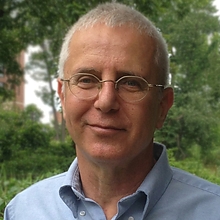
Eytan Ruppin, a professor of computer science in the Center for Bioinformatics and Computational Biology (CBCB), is co-lead of an international study on the molecular interactions between neurodegenerative diseases and cancer during aging.
“Transcriptomic alterations during ageing reflect the shift from cancer to degenerative diseases in the elderly”—published today in Nature Communications—examines molecular alterations that occur as people get older.
Studies have shown that while death due to cancer is most prevalent among people in their 60s, cancer’s contribution to the total mortality rate declines at more advanced ages. Degenerative diseases such as heart failure, dementia or diabetes are on the rise for those over 70.
Ruppin, working with researchers from the Jena Centre for Systems Biology of Ageing (JenAge) and a second team at Kiel University led by Professor Christoph Kaleta, studied the molecular alterations that occur as people get older, comparing them to the molecular signatures of cancer and degenerative diseases.
The study involved the most comprehensive comparison of aging across species and tissues that has been undertaken to date. The scientists compared age-related changes in the activity of genes in humans, mice, the zebrafish Danio rerio and the short-lived killifish Nothobranchius furzeri across several organs. The researchers found many similarities in the molecular signatures of age-associated changes across all species.
Subsequently, the researchers compared the changes in gene activity with the signatures of age-specific diseases. Age-related changes in gene activity were aligned with changes observed in degenerative diseases. Strikingly, the aging-related changes showed a reverse trend compared to the changes observed with cancer.
“As the molecular signatures of cancer and degenerative disorders oppose each other in key cellular processes, it logically follows that the molecular alterations occurring later in life are not able to drive away both cancer and degenerative disorders at the same time,” Ruppin says. “Indeed, our results show that they are likely to be aligned to counteract the increased risk of cancer but, probably inevitably, the price might be an increased risk of a degenerative disease.”
Ruppin, a former professor of computer science and medicine at Tel-Aviv University, was director of CBCB from July 2014 to January 2018. He recently started a new position as chief of the newly founded Cancer Data Science Lab at the National Cancer Institute.
